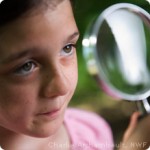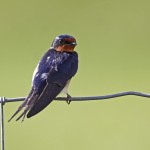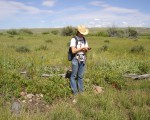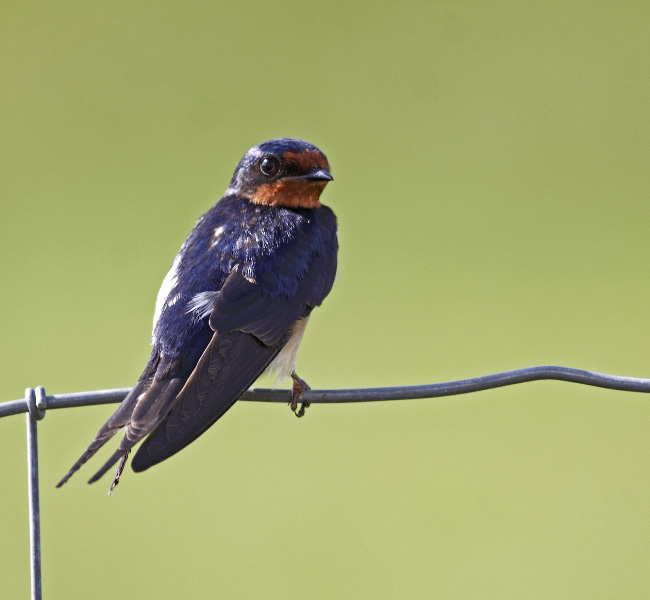 As science itself evolves, a new way of conducting research is emerging. Although a newly coined phrase, Citizen Scientists have been around for a very long time, lending a helping hand to researchers around the globe. Although these individuals may lack a formal education, what they do not lack is passion and enthusiasm. Participation of Citizen Scientists essential allows scientists to be in millions of places at one time; observing wildlife, recording behaviors, and biological sample collection is but a few things they do.
As science itself evolves, a new way of conducting research is emerging. Although a newly coined phrase, Citizen Scientists have been around for a very long time, lending a helping hand to researchers around the globe. Although these individuals may lack a formal education, what they do not lack is passion and enthusiasm. Participation of Citizen Scientists essential allows scientists to be in millions of places at one time; observing wildlife, recording behaviors, and biological sample collection is but a few things they do.
One of the original programs initiated by Citizen Scientists was bird watching. Although a hobby for bird enthusiasts, for volunteers it is a way to share information about animals they love. Working with local chapters of the National Audubon Society bird watchers record and catalog data on the time, environmental conditions, and location birds are seen, as well as nesting behaviors. This information is extremely helpful wherein it is used to determine if a species is prevalent in an area, if there is a shift in home range, or if changes in a population has occurred.
hobby for bird enthusiasts, for volunteers it is a way to share information about animals they love. Working with local chapters of the National Audubon Society bird watchers record and catalog data on the time, environmental conditions, and location birds are seen, as well as nesting behaviors. This information is extremely helpful wherein it is used to determine if a species is prevalent in an area, if there is a shift in home range, or if changes in a population has occurred.
 It is well known that the chytrid fungus is decimating amphibian populations globally. Working in collaboration with the Association of Zoos and Aquariums, Citizen Scientists participate in FrogWatch USA. Not only are volunteers learning about wetland conservation and the plight of amphibians, but they are helping researchers by reporting frogs and toads that are observed, where they are found, and information regarding overall health. Amazingly, FrogWatch USA has entered into its 10th year of monitoring amphibians!
It is well known that the chytrid fungus is decimating amphibian populations globally. Working in collaboration with the Association of Zoos and Aquariums, Citizen Scientists participate in FrogWatch USA. Not only are volunteers learning about wetland conservation and the plight of amphibians, but they are helping researchers by reporting frogs and toads that are observed, where they are found, and information regarding overall health. Amazingly, FrogWatch USA has entered into its 10th year of monitoring amphibians!
Citizen Scientists also play key roles in monitoring environmental conditions and habitat. When weather extremes result in natural disasters, volunteers are sometimes the first individuals on the ground to give a quick assessment and identify places of significant impact. During the devastation that occurred to coastal areas surrounding the Gulf after the BP oil spill, Citizen Scientist worked long hours with zoos and rehabilitation facilities to locate and rescue stranded, oil-soaked wildlife. Furthermore, these same people continue to work tirelessly to monitor the health of the wetlands and its wild inhabitants years after the incident occurred.
 I think it is safe to say that Citizen Scientist have and continue to play an important part in helping further science. If not for the help of these individuals, scientist would not be able to collect the vast amount of data on wildlife and habitat. In addition, Citizen Scientist participate in dissemination of data via public education and act as ambassadors to help others understand why our wild places need help and why it is imperative for them to care.
I think it is safe to say that Citizen Scientist have and continue to play an important part in helping further science. If not for the help of these individuals, scientist would not be able to collect the vast amount of data on wildlife and habitat. In addition, Citizen Scientist participate in dissemination of data via public education and act as ambassadors to help others understand why our wild places need help and why it is imperative for them to care.
